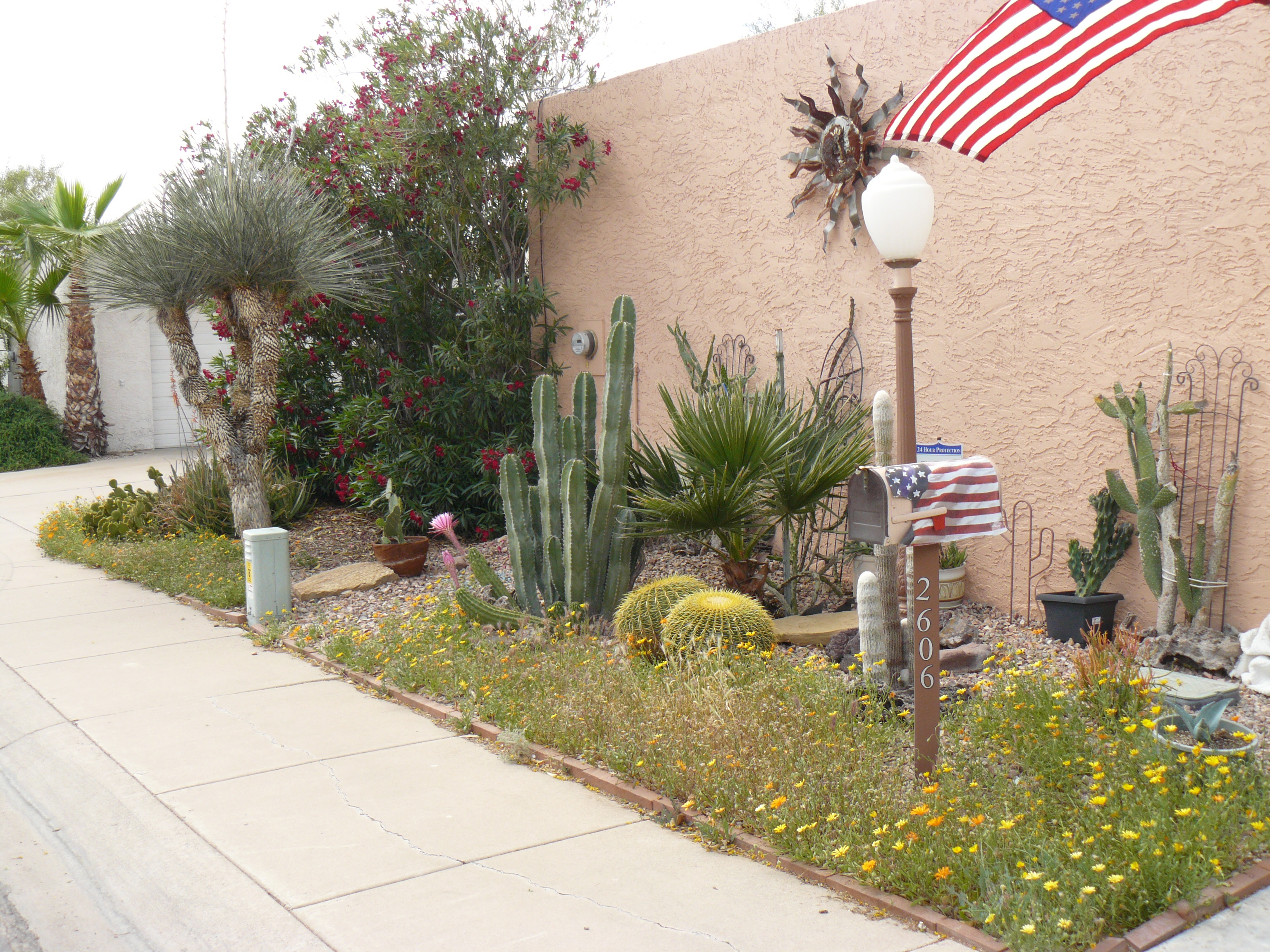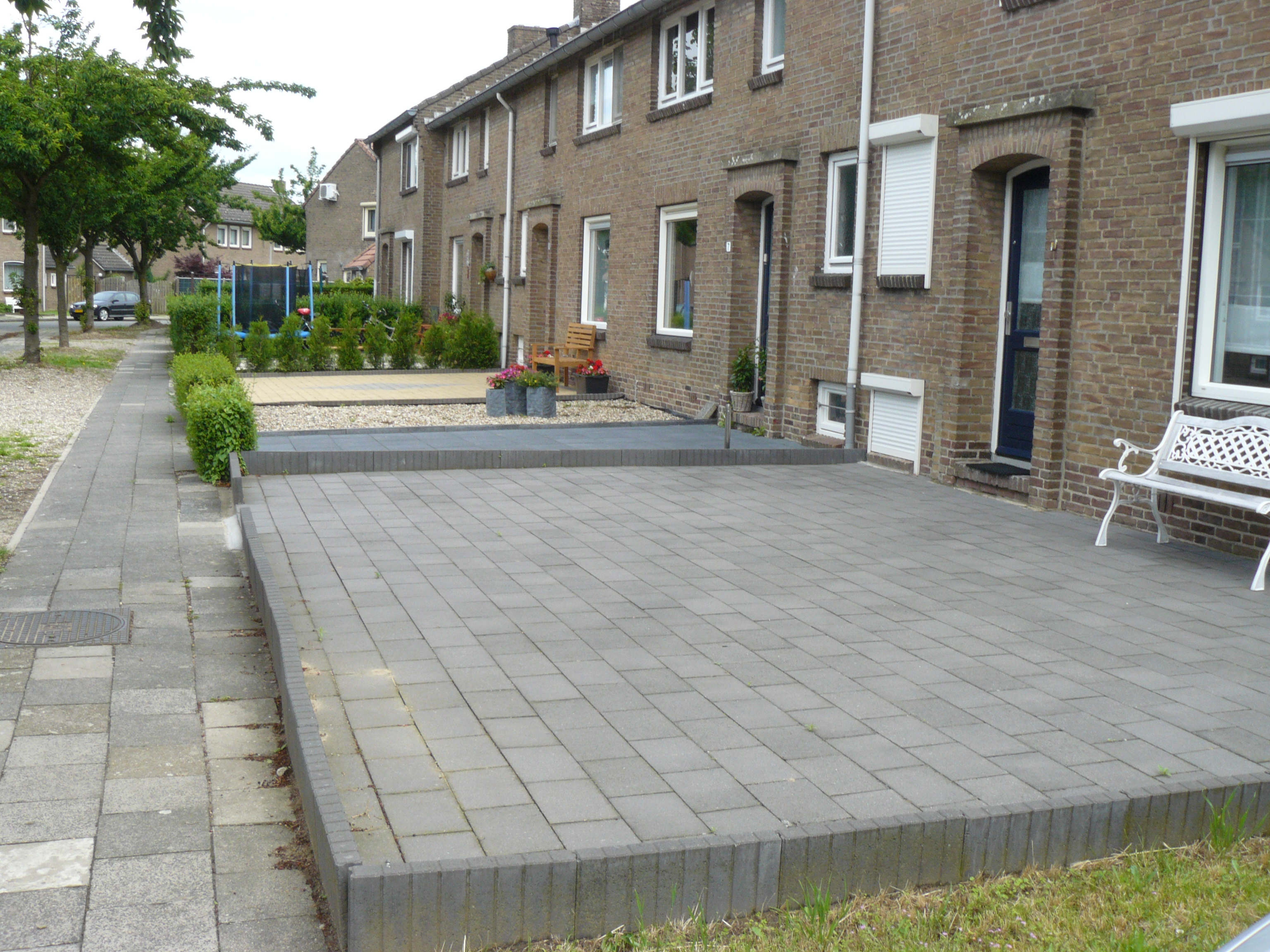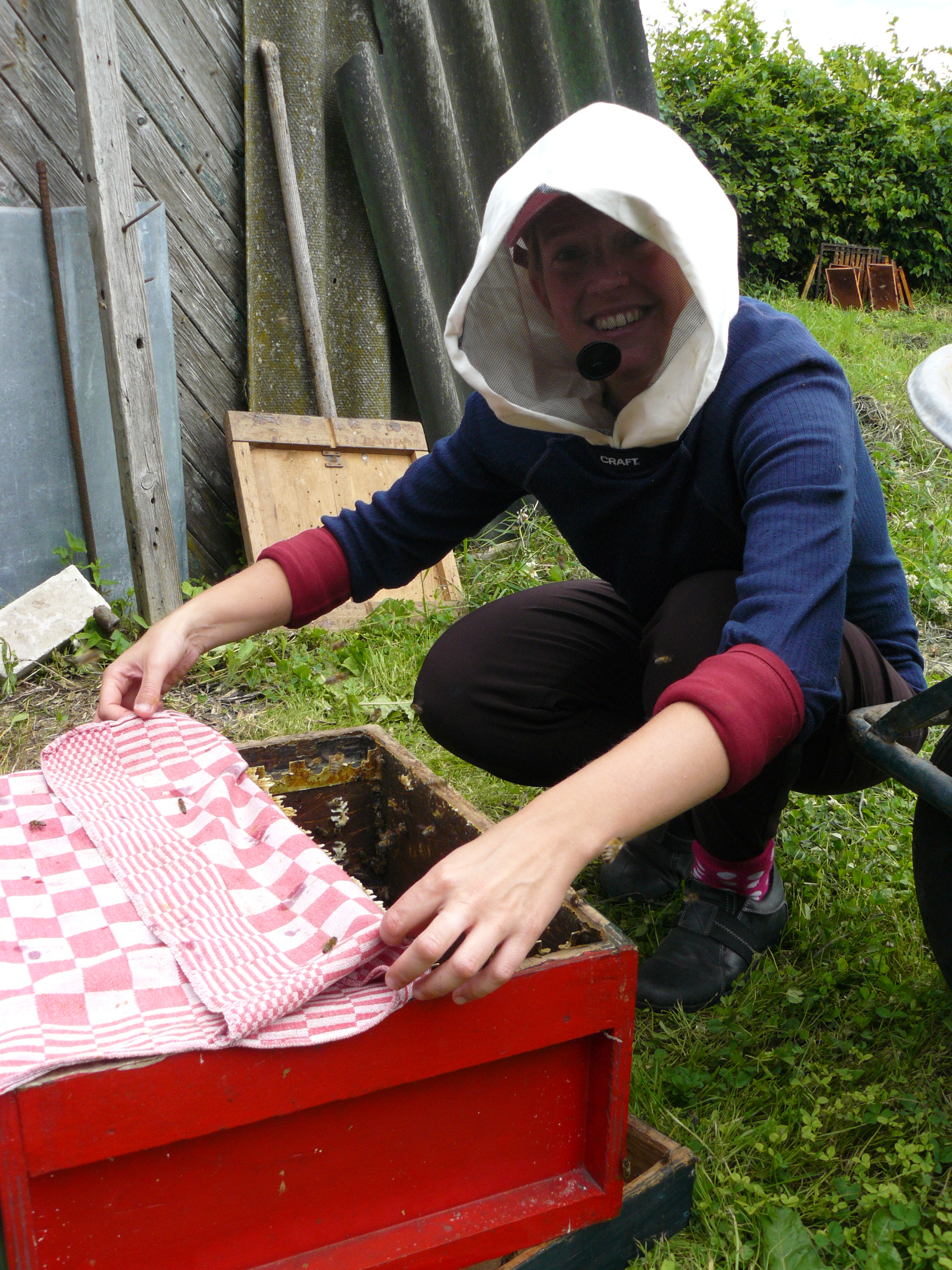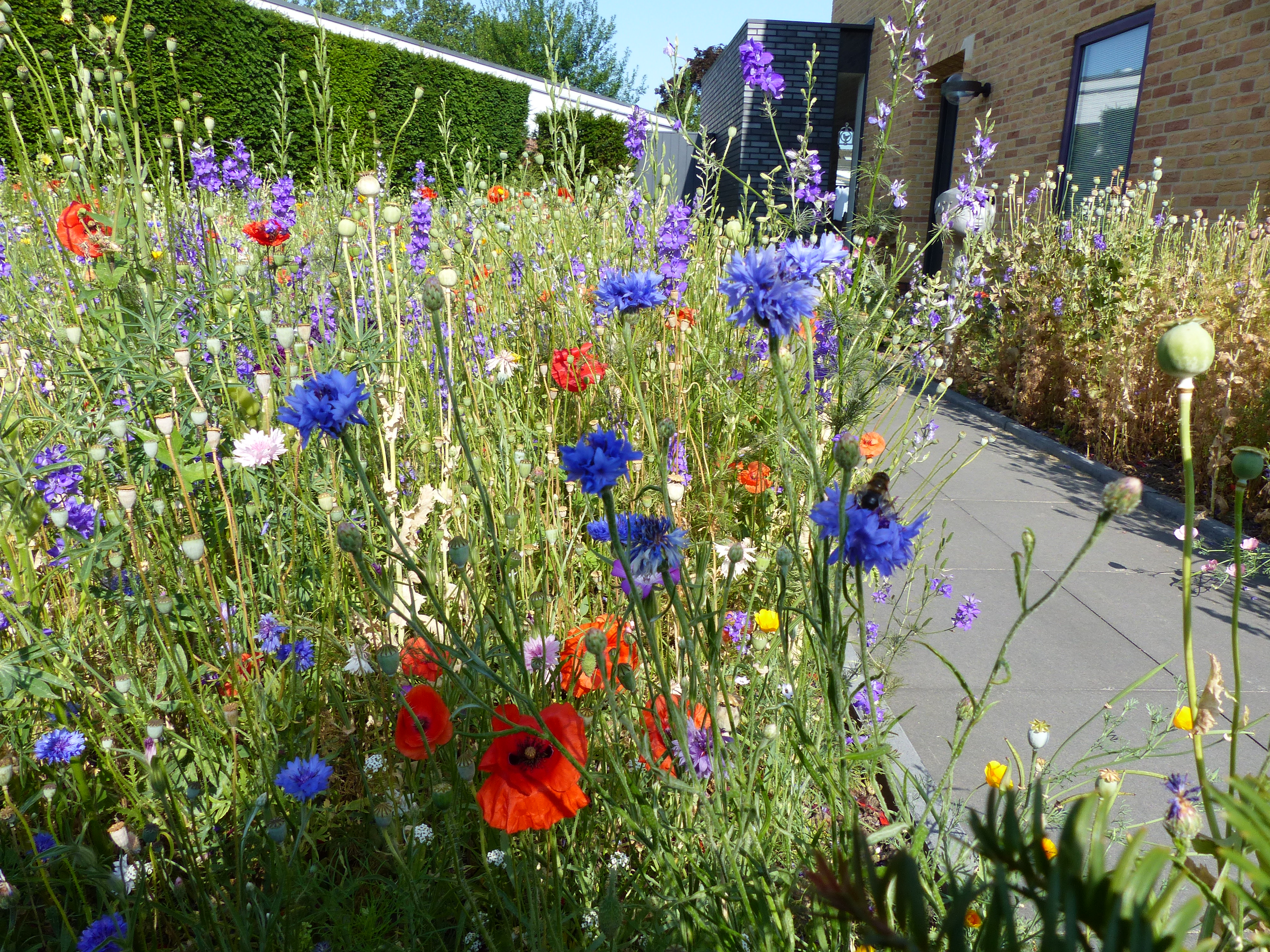Saxifragelisticexpialidocious! Of gardens green and grey
If there’s a stranger in your front yard, just standing there, staring – don’t be alarmed. It might just be Carijn Beumer, researching urban domestic green spaces. If it’s not her, you might well have a problem. (And yes, in case you were wondering, urban domestic green spaces are indeed gardens…)
Carijn Beumer is an Assistant Professor at the Faculty of Health, Medicine and Life Sciences’ Department of Health, Ethics and Society. Apart from coordinating and teaching in the Global Health programme, she researches the role of domestic green spaces for sustainable urban living environments. Beumer looks into their effects on ecosystems but also on health and human well-being – or at least the perception thereof.
A plethora of oases in the desert
She stumbled across her research topic – ironically enough – in the desert. During her PhD, originally on perspectives on biodiversity conservation, she went on a research trip to Arizona State University in Phoenix to look at green parks in the city and urban farmers. “As I got there, I realised I knew nothing about desert environments,” she remembers.
“So I took some time to walk around, talk to people and just study the flora and fauna.” Beumer ended up in the suburbs and was intrigued how people design their gardens there: all green. That detour prompted her to take her PHD research into a slightly different direction: domestic spaces for biodiversity and sustainable cities. “All the gardens put together make up a big share of green spaces and potentially contribute much to biodiversity.”

Carijn Beumer is an Assistant Professor at HES (FHML). Her PhD in Sustainability Science at ICIS focused on perspectives on biodiversity conservation in an urban setting. She has been involved in projects such as the INTERREG IV funded ‘Sustainable Urban Neighbourhood project’ and Operatie Steenbreek.
Up the garden path into a dead alley
“Sauntering along and admiring people’s front yard is a lot less common in the US than Europe.” The reverse is the case with owning firearms – but Beumer was undeterred. “The friends I stayed with were worried about me,” she laughs. “But some people saw me looking at their front yard and when I explained what I was doing, they invited me in to show me their garden as well.”
A desert city so fond of green? “When the settlers moved to Arizona, they took the idea of lush, green European gardens with them.” The discrepancy between that displaced ideal and one of the hottest cities in the US has obvious consequences. “Irrigating the gardens makes up 70% of household water consumption. A lot of the water from the sprinklers evaporates before it touches the lawn.”

Low maintenance – high consequence
Taking her newly discovered curiosity for other people’s gardens back home led to a grey revelation. “Here it was the opposite: more and more people are paving their gardens.” The low-maintenance look isn’t only due to the Dutch being intensely and amiably practical. “They are setting up outdoor kitchens and lounge areas. That trend is pushed by TV programmes promoting gardens as extended living rooms.”
It’s a personal choice which, on aggregate, has public consequences. “Urban heat islands can be up to 10 degrees hotter than the surrounding areas.” The main reason being surface modifications: pavement. Built up cities store heat – green spaces offset the effect somewhat. “A single tree in your garden is the equivalent of 10 air conditioning units.”
It’s not a fair-weather problem either. Paved gardens mean that rainwater isn’t absorbed and stored in the soil; instead it flows directly into the sewage systems. The excess burden leads to flooded basements and diminished groundwater supplies. Also: in general, people like it green. “It’s funny: people want green public spaces, while at the same time choosing a paved garden…”

Dutch flair
Saxifragelisticexpialidocious
The topic also occupies her outside of work – in the absence of a garden of her own, she’s turned to activism. Beumer is one of the founders of a nationwide initiative Operatie Steenbreek, a nationwide inititative named after Saxifrage or rock foil. It’s a network of several municipalities and knowledge institutions across the Netherlands that tries to promote greener cities.
“Connected gardens have tremendous public value but it’s difficult: people might not want to have a green garden – or might want to but don’t have the time.” She rejects taxing paved gardens as uncomfortably paternalistic. Instead, Operatie Steenbreek is trying different ways of approaching residents in different places - there are now more than a hundred cities participating.
Maastricht could be greener
They offer workshops and inspiration for lush but low maintenance gardens with e.g. ground cover, like vines, shrubs or moss. “You don’t have to do anything really; just put them there and cut them once a year. It keeps the soil healthy and it’s good for biodiversity because it shelters hedgehogs, birds and bugs.” Beumer thinks Maastricht has some catching up to do but sees plenty possibilities.
“You could think of pairing students who like gardening with older people with gardens who no longer can.” At the same time she acknowledges that a lot of good things are happening, from the redevelopment of the Tapijnkazerne to UM’s own sustainability efforts. Still, she prefers thinking big: “For example, you could green all the flat roofs on the Randwyck campus!”

Common-or-garden armchair academic? Beumer likes beeing in the field.
Exasperating dawn chorus
As a scientist, Beumer takes a nuanced view on gardening. “You can get injured gardening or get diseases… or get annoyed by birds singing in the morning. It’s all about perception!” In the wetter areas, e.g. in Almere, there are mosquito issues, which a warming climate could exacerbate” At the same time, gardens, especially if they are connected, provide a habitat for many animals that eat mosquitos.
The benefits of having a green garden aren’t limited to biodiversity either. Beumer cites stress reduction as a major physical upside. Despite her critical and holistic approach, she remains a big fan of gardens. “I love doing the research! It’s fascinating: the gardens are as different as the people – even the completely paved ones are really diverse…”

Also read
-
De Nederlandse Organisatie voor Wetenschappelijk Onderzoek (NWO) maakte 17 juli jl. bekend welke onderzoekers de zogenaamde Veni-beurs krijgen. Deze beurs gaat naar veelbelovende onderzoekers uit de volle breedte van de wetenschap.
-
Maastricht University students have won the Dutch final of the student competition Ecotrophelia, a drinking vinegar based on apple cider vinegar, fruit and herbs.
-
In the upcoming months, we’ll share tips on Instagram for our students on how to live a healthier life. Not just a random collection, but tips based on actual research happening at our faculty. The brains behind this idea are Lieve Vonken and Gido Metz, PhD candidates at CAPHRI, the Care and Public...


